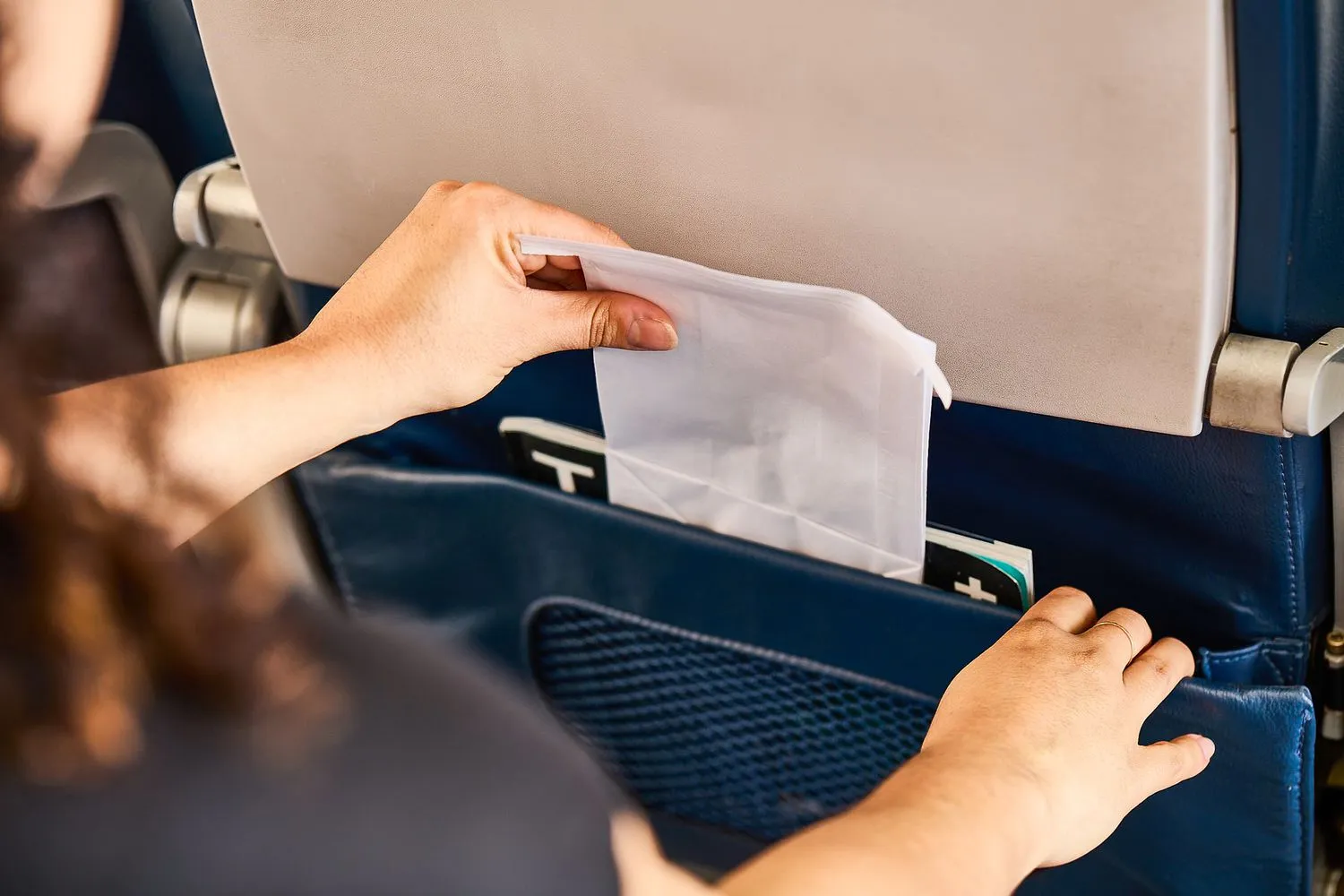To minimize airplane discomfort, prioritize a seat near the wing, where movement is less pronounced. Focus your gaze on a fixed point outside, avoiding reading or screens. Stay hydrated and avoid heavy meals or excessive alcohol before and during the flight. Consider taking over-the-counter motion sickness medication like Dramamine before takeoff. Adjust air vents for fresh air circulation to help stay comfortable.
Understanding Airplane Motion Sickness
Motion sickness arises from a sensory mismatch. Your inner ear, eyes, and body send conflicting signals to your brain. In an airplane, your inner ear senses movement (acceleration, deceleration, and turns), while your eyes, focused on the static interior of the cabin, perceive stillness. This confusion triggers the brain's "poison alarm," leading to the unpleasant symptoms we associate with motion sickness.
Factors that can exacerbate motion sickness on airplanes include turbulence, poor ventilation, anxiety about flying, pre-existing inner ear conditions, and even what you eat before and during your flight.
Strategies to Prevent Airplane Motion Sickness
The key to preventing motion sickness is to minimize the sensory conflict your brain experiences. Here are some effective strategies:
Choose Your Seat Wisely: This is paramount. Opt for a seat over the wing. This is usually the most stable part of the plane, experiencing less motion than the front or back. Booking a window seat allows you to look outside and synchronize your visual input with what your inner ear is sensing.
Focus on the Horizon: If you're in a window seat, keep your gaze fixed on the horizon. This helps your eyes confirm the movement your inner ear is detecting, reducing the sensory mismatch.
Adjust Airflow: Use the overhead air vent to direct cool air towards your face. Fresh air can help alleviate nausea and improve your overall comfort.
Avoid Reading or Screens: Reading a book or watching a movie on a small screen can worsen motion sickness by creating further visual conflict. If you must use a device, take frequent breaks and focus on the horizon.
Stay Hydrated: Dehydration can exacerbate nausea. Drink plenty of water throughout your flight. Avoid sugary drinks and excessive caffeine or alcohol, as these can worsen symptoms.
Ginger Power: Ginger has long been known for its anti-nausea properties. Consider taking ginger capsules, drinking ginger ale (real ginger ale, not just ginger-flavored soda), or nibbling on ginger candies before and during your flight.
Eat Lightly: Avoid heavy, greasy, or spicy foods before and during your flight. Opt for bland, easily digestible snacks like crackers or plain bread. An empty stomach can also contribute to nausea, so don't skip meals entirely.
Medication Options: Over-the-counter motion sickness medications like dimenhydrinate (Dramamine) or meclizine (Bonine) can be effective. Take them according to the package directions, usually an hour or two before your flight. Be aware that these medications can cause drowsiness. Prescription medications, such as scopolamine patches, are also available but require a doctor's consultation.
Relaxation Techniques: Stress and anxiety can worsen motion sickness. Practice relaxation techniques like deep breathing, meditation, or listening to calming music to ease your nerves.
Motion Sickness Prevention: A Quick Reference
Here's a handy chart summarizing these tips:
Strategy |
Description |
Benefit |
|---|
Seat Selection |
Choose a seat over the wing, ideally a window seat. |
Minimizes perceived motion and allows you to focus on the horizon. |
Focus on the Horizon |
Keep your gaze fixed on the horizon (if possible). |
Synchronizes visual input with inner ear sensations. |
Airflow |
Direct cool air from the overhead vent towards your face. |
Reduces nausea and improves comfort. |
Avoid Screens/Reading |
Limit screen time and reading to minimize visual conflict. |
Reduces sensory overload. |
Hydration |
Drink plenty of water throughout the flight. |
Prevents dehydration-induced nausea. |
Ginger |
Consume ginger in various forms (capsules, ale, candy). |
Natural anti-nausea remedy. |
Light Meals |
Eat bland, easily digestible snacks before and during the flight. |
Avoids triggering nausea from heavy or empty stomach. |
Medication |
Consider over-the-counter or prescription motion sickness medications. |
Suppresses the brain's nausea response. |
Relaxation |
Practice deep breathing, meditation, or listen to calming music. |
Reduces anxiety and overall discomfort. |
When to Seek Medical Advice
While these strategies are generally effective, some individuals experience severe motion sickness that doesn't respond to over-the-counter remedies. If your symptoms are debilitating, persistent, or accompanied by other symptoms like severe headache, dizziness, or vomiting, consult your doctor. They can rule out underlying medical conditions and recommend more specialized treatment options.
By implementing these preventative measures, you can significantly reduce your chances of experiencing airplane motion sickness and transform your next flight from a source of dread into a pleasant and enjoyable journey. Safe travels!


















